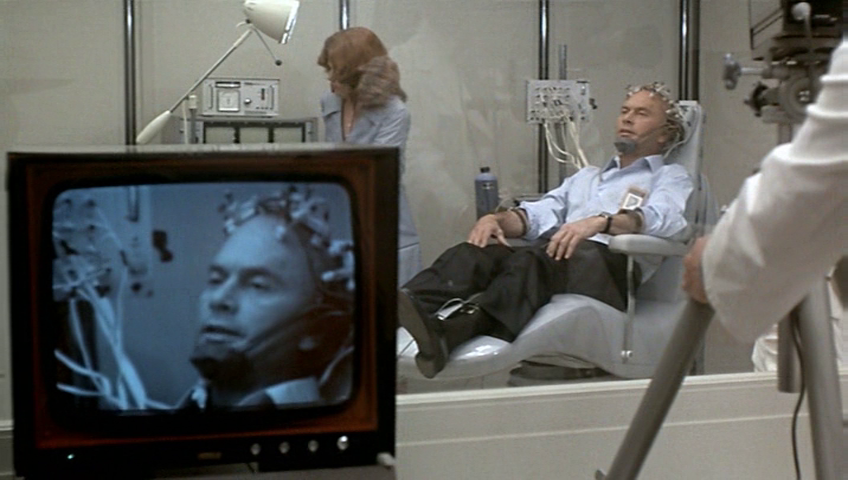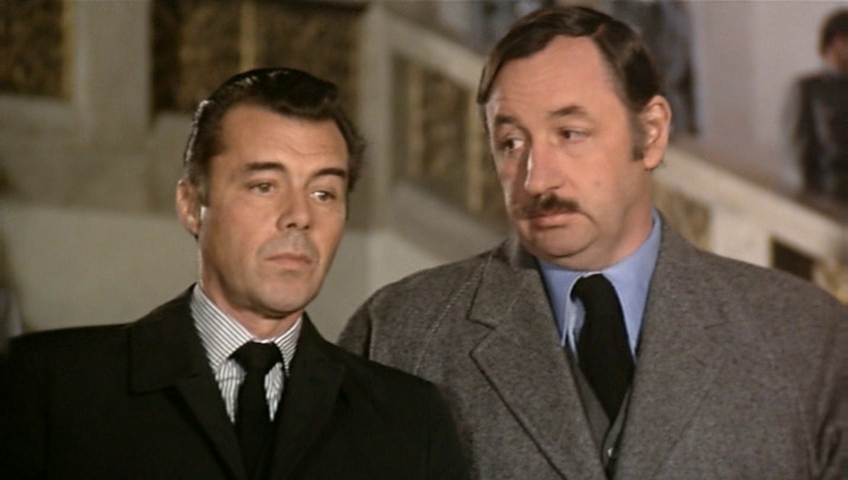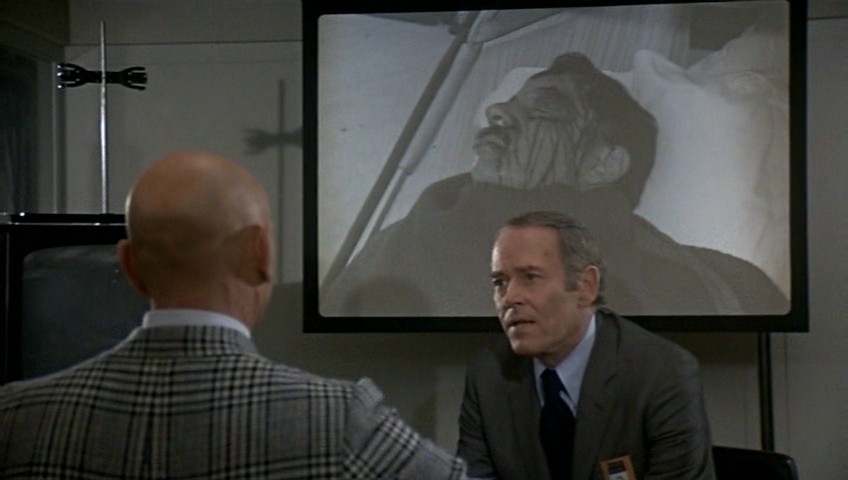Last Updated on September 30, 2020 by rob
A Russian Colonel named Vlassov (Yul Brynner) defects with a list of high ranking double agents working in the West he’s willing to turn over to CIA head Davies (Henry Fonda). As word of the traitors trickles back to the countries concerned the suspects begin turning up dead by suicide and it looks as though Vlassov’s been telling the truth. But when French spymaster Lucien (Phillippe Noiret) is set up by British spook Boyle (Dirk Bogarde) for allegedly helping two Russian spies flee the UK before arrest it becomes clear to the French official investigating Lucien (Michel Bouquet) that there’s more going on than meets the eye.
Le Serpent boasts a top notch cast but despite the star power the story’s the thing here with the characters coming in a distant second. This is very much in the vein of a George Markstein or John LeCarre novel, spying as a dirty, grubby business with no room for individual heroics – in other words James Bond it most definitely ain’t. There’s even a breathless, stentorian voiceover regularly cropping up to inform us of the date, time and place of the action! It’s a technique that does convey a sense of urgency to the narrative but at the same time feels awfully dated. The film’s title refers to the Biblical account of how the Devil tricked Eve into biting the apple. Said apple in this story of course being the list of Russian spies Vlassov dangles in front of the West.
As is standard for this sort of stuff a lot of innocent people end up dying for the cause before a series of surprising twists sheds new light on events. The film’s apparent fetishisation of the CIA in thrall to the power of polygraph tests and machines (there are l-o-n-g sequences of Vlassov undergoing lie detector tests while acolytes in white lab coats scuttle back and forth in front of the old reel to reel storage cabinets) actually conceals a shrewd point in that although technology might be able to tell you if someone is lying it can’t tell you why, and it’s this unknowable human factor (stemming from the actions of Fonda’s character when he adds two suspects of his own to Vlassov’s list) that quickly wreaks havoc on both Vlassov’s mission and those tasked with figuring him out.
If it’s mildly disappointing that Le Serpent gives none of its cast much opportunity to shine (Brynner is largely confined to answering questions under interrogation, Fonda spends most of his time striding purposefully down hallways and in and out of offices, while the superb French actor Michel Bouquet appears at the start and end of the film but nowhere else) this is compensated for by Dirk Bogarde, playing a self-effacing, manipulative spook with a murderous gleam in his eyes whose character weaves in and out of the story and in whom the script effectively invests its biggest surprises. Phillippe Noiret as the sad eyed French spymaster Lucien also comes off well. He’s easily the most engaging character – at least of the good guys – because the deck seems so unfairly stacked against him. The last act is basically Lucien using his spy skills to outwit Michel Bouquet’s intelligence boss as he tries to get to the bottom of who framed him and why.
I especially liked the scene in which Lucien goes on public radio to defend his honour against accusations of treason only for it to backfire disastrously for him (the film again displaying an ambivalent attitude towards technology). There’s nothing flashy to Henri Verneuil’s direction, it’s the epitome of workmanlike efficiency and yet I found the film consistently engrossing (even when Bogarde’s character is revealed to be a Russian agent half-way through the movie it’s still impossible to figure out just how all this is going to end) and despite the pre-digital technology on display here looking like something out of a museum the recognition that no matter how much trust man puts in his machines the random human factor is guaranteed to come along and fuck things up, means this still holds up as a Cold War mystery with substance.



